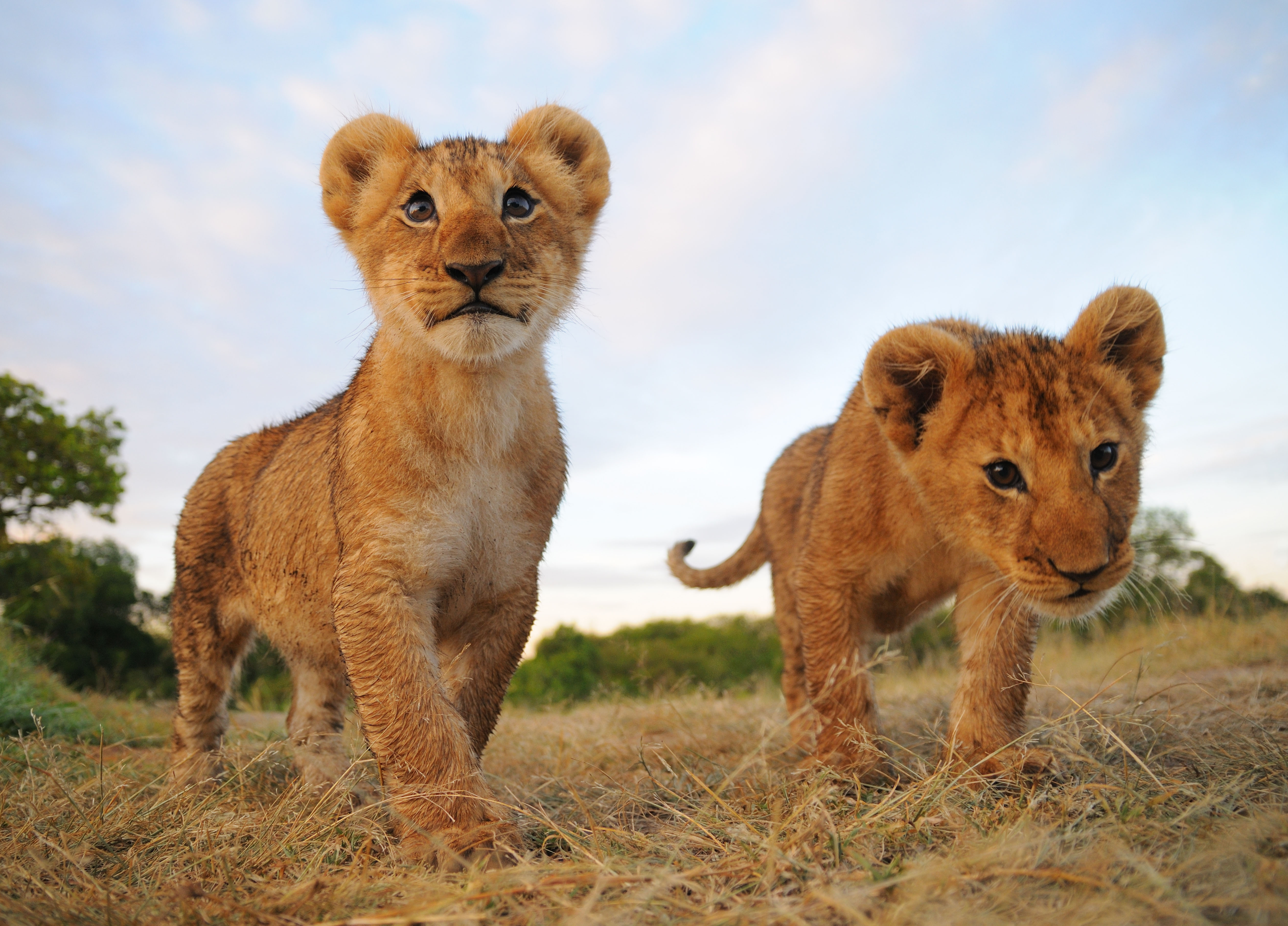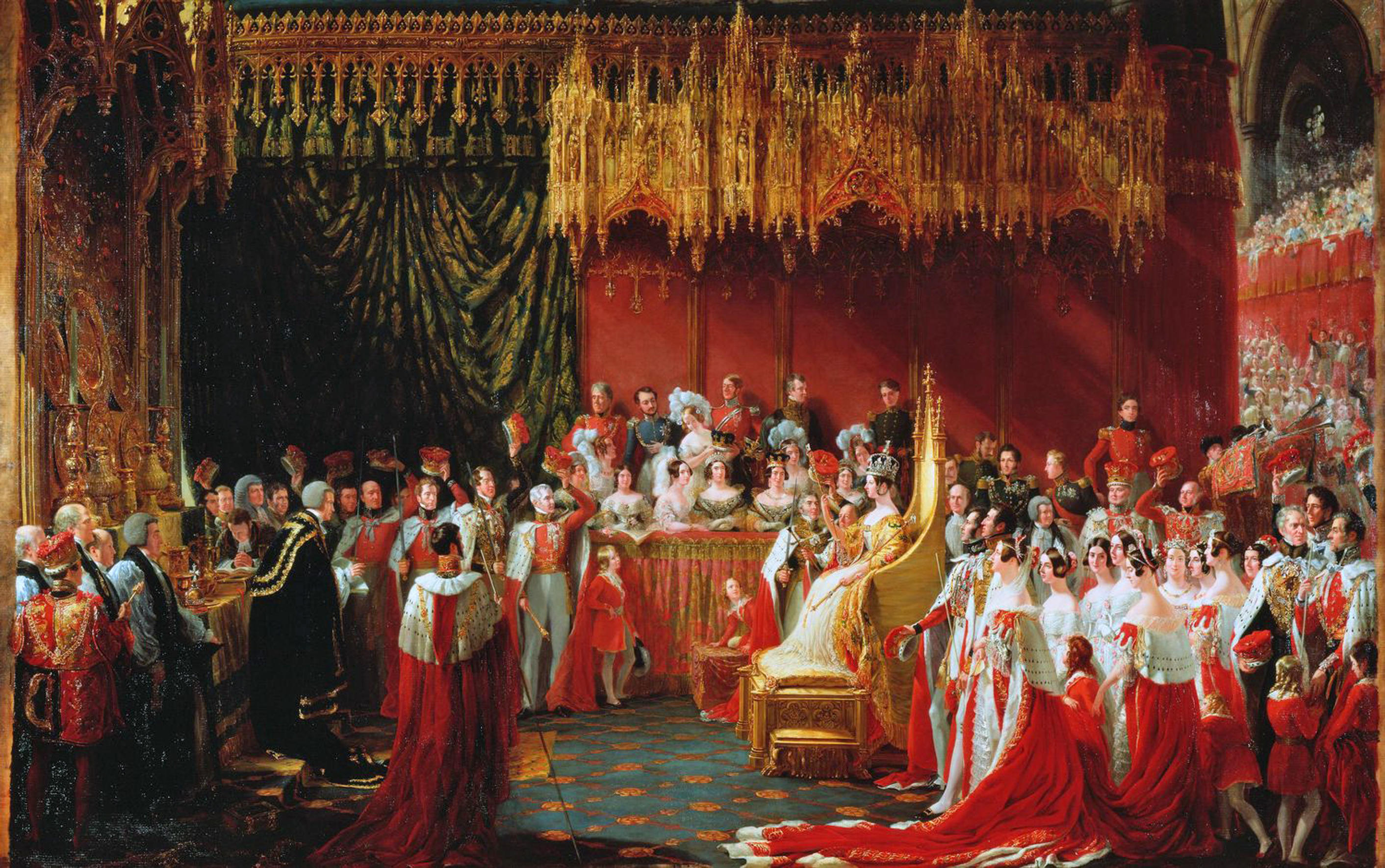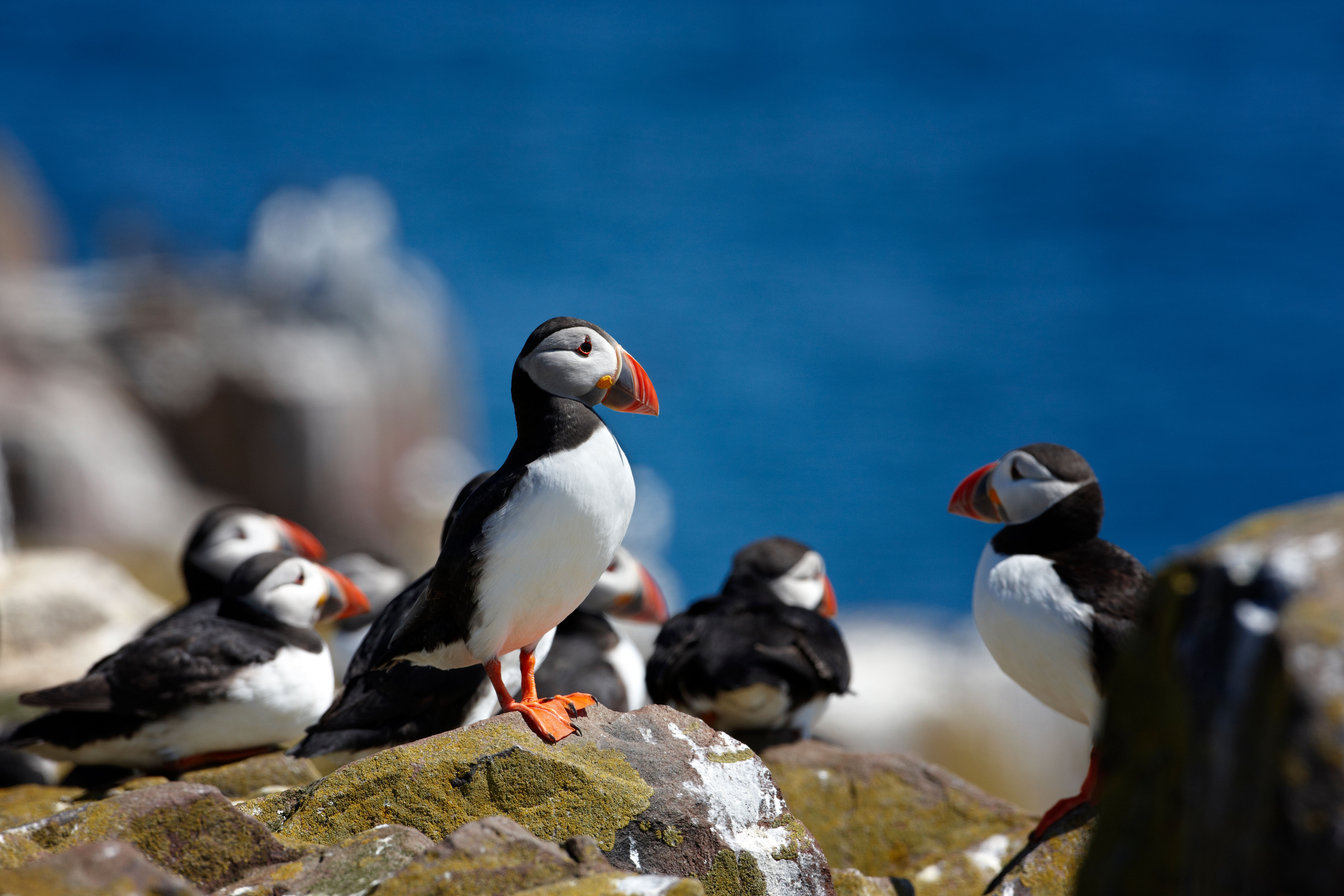Country Life Today: The lion cubs living in an English country garden
Our daily look at what's in the news focuses on a pair of lions living in an English village, Queen Victoria's coronation and how June's wet weather was a tragedy for puffins. It also looks at a discovery that could unlock the history of mankind - and a new mission which could unlock its future.

Exquisite houses, the beauty of Nature, and how to get the most from your life, straight to your inbox.
You are now subscribed
Your newsletter sign-up was successful
But will they ask the neighbours to feed them when they go on holiday?
A couple who live in the picturesque English village of Strelley have been granted permission to keep lions in their back garden.
'Animal lover Reece Oliver, 28, has won planning permission for a 400 square metre enclosure to house Rocky and Rora, two seven-month-old African lions, much to the chagrin of his neighbours who said the animals could be a danger to members of the public,' reports the Daily Telegraph.
Mr Oliver and his girlfriend Annie Hughes apparently rescued the lions from a Czech circus and have been keeping them for months, without the correct permission.
'It's the best feeling in the world, it's the best result ever,' said Mr Oliver, a licensed big cat keeper who already owns a puma, after hearing that he'd won his case.
'I love those animals, they're like children to me. It would have been like taking my children off me.'
The 160,000-year-old cave man whose jawbone could 'unlock the whole of the human tree'
The discovery of a human jawbone containing identifiable proteins could shed new light on the early history of Man, according to Nature. An unfortunate early human called a 'Denisovan', who died in a Tibetan cave 160,000 years ago, has revealed all sorts of things to scientists studying the new field of palaeoproteomics.
Exquisite houses, the beauty of Nature, and how to get the most from your life, straight to your inbox.
'I think that you can basically unlock the whole of the human tree,' Matthew Collins, a bioarchaeologist at the University of Copenhagen, told Nature.
On This Day: The coronation of Queen Victoria

It's exactly 181 years since Queen Victoria was crowned at Westminster Abbey, on 28 June 1838. She was just 18 at the time.
Read AN Wilson's appreciation of Queen Victoria (Country Life)
Puffin populations hit by June's rainy start

It might be warm now, but the appalling weather at the start of June is still being felt - not least by sea birds on the Farne Islands, off Northumberland. Torrential rain apparently proved fatal for chicks on these remote dots on the map. 'Arctic terns, puffins, guillemots and shags, all suffered losses,' reports The Guardian. Some 300 pufflings - baby puffins - were apparently lost, according to the National Trust, as their nests were flooded by 5in of rain in 24 hours on 13 June.
Stat of the Day
4 out of 5
The number of councils in Britain that fail to recycle everything they ought to be doing under government targets which were supposed to have been hit by 2020. 74 out of 345 provide a 'complete' service, but the number at the other end of the scale are sobering: a quarter have no plastic recycling facilities, while one in 10 doesn't even collect glass. Given how cash-strapped most councils are these days, perhaps the real surprise is that things aren't worse.
Britain's oldest yew trees are nothing like as old as we thought (but they're still really, really old)
Britain's most ancient yew trees may be rather less ancient than previously thought. A new system for ageing the trees - one which uses 'a combination of tree girth, ring creation and historic rates of growth' according to The Times's report - suggests that several trees which were thought to be 4,000 or 5,000 years old are actually relative saplings of 'only' a couple of thousand years old.
'The Fortingall yew in a churchyard in Perthshire would still be the oldest in Britain under this method but it would be about 2,000 years old and not the oft-stated 5,000 years old,' the report continues.
'Similarly, the Ankerwycke yew at Runnymede in Surrey is now believed to be more Norman than Roman, first sprouting 900 years ago rather than 2,500 years ago.'
Full story (The Times - subscription required)
A long time coming...
The Royal Company of Edinburgh Golfers, better known to the world as Muirfield Golf Club, will officially welcome its first 12 female members on July 1. (Unless they get blackballed between now and Monday.)
If all else fails with saving Earth, NASA is working on Plan B: Let's all move to Titan

Mars is too cold. Venus is too hot. But Saturn's moons, and in particular Titan, have long been thought to be more potentially suitable for sustaining life.
NASA announced on Thursday evening that they are sending a ship to Titan - Saturn's biggest moon, a place described by the agency as an 'ocean world in our solar system'. The Dragonfly mission will launch in 2026 and return to Earth in 2034 after scouting a number of locations with a view to potential human settlement.
And finally... Britain's oldest dog, still chasing the girls aged 143
Meet Britain's oldest dogs who prove that life begins at 100 https://t.co/Phyp3gQ9B2 pic.twitter.com/dyHer9CHDeMeet Britain's oldest dogs who prove that life begins at 100 https://t.co/Phyp3gQ9B2 pic.twitter.com/dyHer9CHDe— Daily Mirror (@DailyMirror) 26 June 201926 June 2019
A Jack Russell named Boycie - who is 21 in human years, or 143 in dog years - is now the nation's oldest dog, following the sad death of 23-year-old Charlie late last year, according to the Daily Mirror.
Boycie sounds like a bit of a scamp: 'Out on walks, old Boycie makes a beeline for the younger girl dogs. He just won’t give up,' says owner Jo Titchener, who has had him for the last 15 years.
Toby Keel is Country Life's Digital Director, and has been running the website and social media channels since 2016. A former sports journalist, he writes about property, cars, lifestyle, travel, nature.

